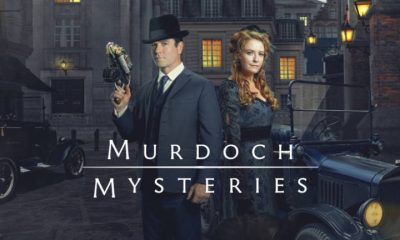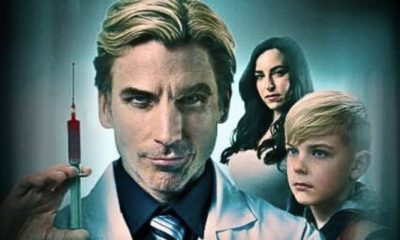Features
Movie Legends: George C. Scott
He spent four years in the Marines, but didn’t want to make a career out of it. Wanted to be a journalist, but had no writing talent. Tried his hand at teaching, but never felt sure that was his calling.
Ironic for an actor who seems to have been born gruffly decisive.
Born in Wise, Virginia in 1927, and raised in Detroit, George C. Scott took off for the New York stage in his early 30s. Scott took New York by storm in 1957 with his vituperative portrayal of Richard III with the New York Shakespeare Festival. Then, Scott was everywhere – in dozens of plays on Broadway, including “The Little Foxes” and “Plaza Suite.” He not only knew what he wanted to do – he loved his job. Scott made his first film splash with Gary Cooper, as a religious zealot in “The Hanging Tree” (1959). Gravel-voiced and smoldering, Scott proved a riveting screen presence.
The roles? Stellar and memorable. The cynical attorney in “Anatomy of a Murder” (1959). The take-no-prisoners manager in “The Hustler” (1961). The crazed, comic general in “Dr. Strangelove” (1964). The soulless surgeon in “The Hospital” (1971). Uncomfortable with the trappings of celebrity, Scott caused a ruckus by refusing his Best Actor Oscar for his landmark portrayal of the curmudgeon, heroic “Patton” (1970), proving that not only war is hell; ceremonies can be hell, too. Scott’s commanding presence has made him a formidable director of films including “Rage” (1972) and “The Savage Is Loose” (1974). Twice married and twice divorced from actress Colleen Dewhurst, Scott also had his time with his “The Bible” co-star Ava Gardner in the mid-Sixties.
A powerful force; a magnificent screen presence; a larger than life hero. What more could you want from an actor?
-

 News2 days ago
News2 days agoClaim Your Cash? Britain’s Hidden Fortune – Tonight, 18 April 2024, ITV1
-

 News3 days ago
News3 days agoInterrogation Raw, April 18, 2024, A&E, “Massacre in Maine”
-

 News2 days ago
News2 days agoJeopardy! Recap, Winner and Today’s Final Answer Wednesday, April 17, 2024
-

 News2 days ago
News2 days agoThe Hotel Inspector: Chiltern’s View Lodges, 18 April, 2024, Channel 5







































